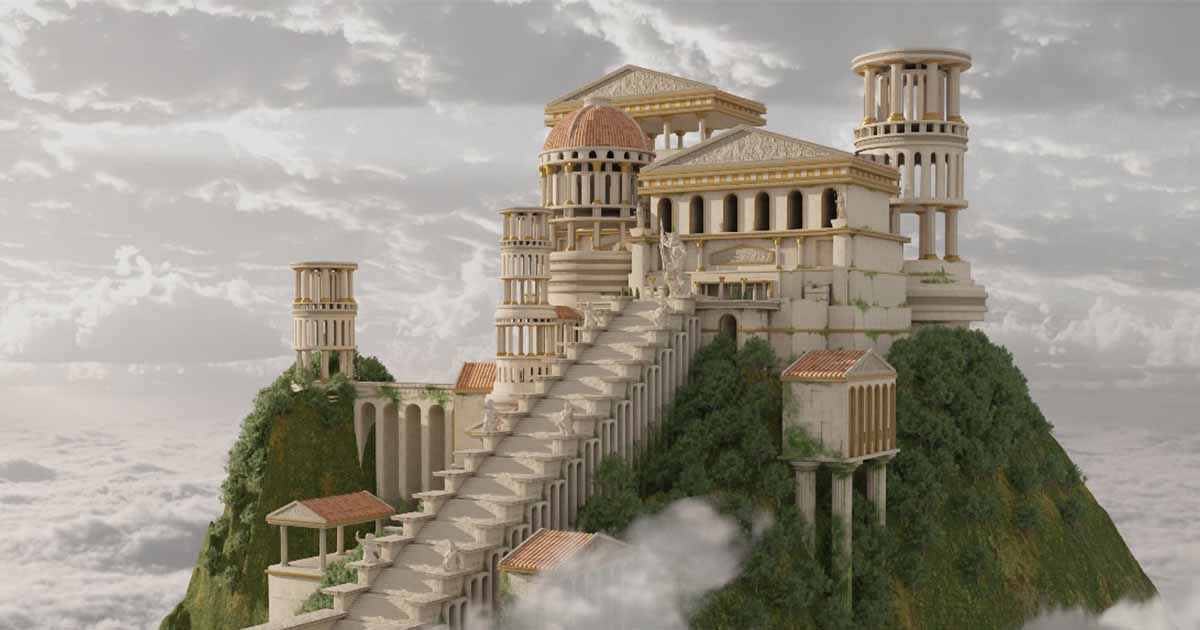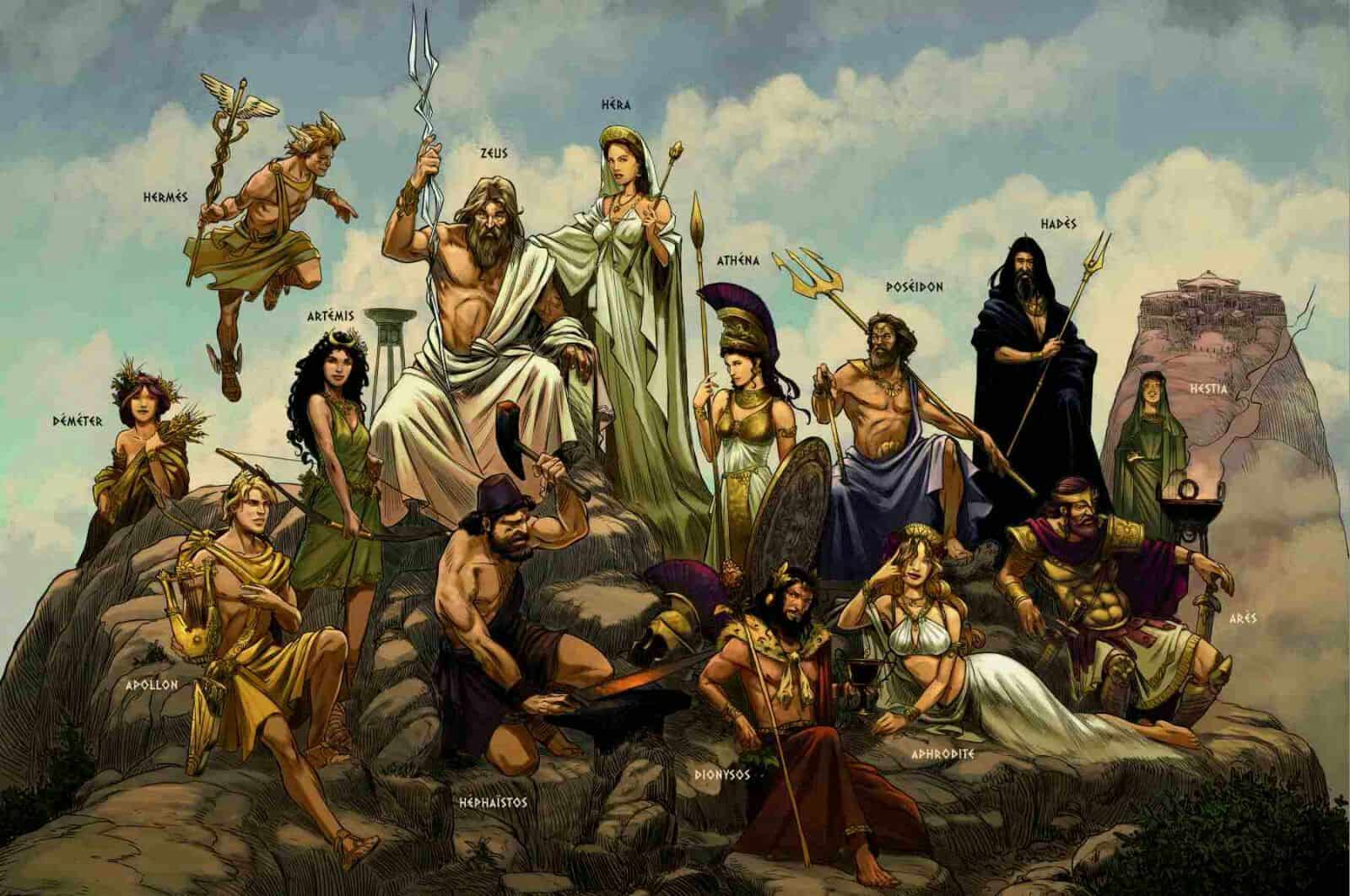Exploring Myths and Epics across Nations
Myths and epics are woven into the very fabric of human history, serving as vessels for cultural values, societal anxieties, and profound truths. Each nation possesses a unique tapestry of these imaginative narratives, reflecting their specific geographical landscapes, historical encounters, and spiritual beliefs. Let us embark on a voyage through three distinct cultures, immersing ourselves in the epic tales that shaped their identities.
1. Greece: Pantheon of Gods and Heroic Deeds
Olympian Grandeur:
Enter Mount Olympus, the majestic abode of the twelve Olympian gods, each embodying distinct principles and wielding formidable powers. Witness Zeus, the thunderous king, Athena, the goddess of wisdom, and Aphrodite, the embodiment of love, as they weave their complex narratives of passion, power struggles, and interventions in human affairs.
Olympus
Heroic Voyages:
Embark on perilous journeys with iconic heroes like Odysseus, whose cunning mind navigates mythical monsters and treacherous seas in his decade-long odyssey home. Stand alongside Achilles, the valiant warrior whose rage ignites the Trojan War, and learn the heartbreaking tale of Antigone, defying societal norms to honor her fallen brother.
Odysseus
Moral Lessons and Enduring Legacy:
Greek epics like the Iliad and Odyssey delve into themes of mortality, honor, pride, and the consequences of human actions. These timeless tales continue to resonate across cultures, offering profound insights into the human condition and inspiring artistic expression from literature to film.
2. Norse Mythology: Vikings, Gods, and Ragnarok
A World of Nine Realms:
Travel across the nine realms of Norse mythology, from the vibrant halls of Asgard, home of the gods, to the icy depths of Niflheim, the realm of the dead. Encounter Odin, the Allfather, his cunning trickster brother Loki, and the mighty Thor, whose hammer Mjolnir unleashes thunder and lightning.
Ragnarok and the Twilight of the Gods:
Brace yourself for Ragnarok, the epic prophesied battle that will bring about the destruction of the gods and the world. Witness Thor facing his nemesis Jormungandr, the Midgard Serpent, and Odin confronting the monstrous wolf Fenrir in a final, cataclysmic clash.
Echoes in Literature and Popular Culture:
Norse myths have captivated audiences for centuries, inspiring literary giants like J.R.R. Tolkien and Wagner's operas. Today, they continue to find expression in popular culture, from Marvel comics to video games, showcasing their enduring appeal and influence.
3. Japan: Kami, Samurai, and Fantastical Journeys
Shinto Spirits and Legends:
Immerse yourself in the world of Shinto, Japan's indigenous religion, where kami, divine spirits, inhabit the natural world and influence human affairs. Meet Amaterasu, the sun goddess, and Susanoo, the tempestuous storm god, whose mythical struggles shaped the creation of the Japanese islands.
Epic Sagas and Heroic Quests:
Join Momotaro, the peach boy, on his journey to defeat oni demons, or follow the tragic love story of Urashima Taro, who visits the underwater palace of Ryujin, the dragon god. Explore the fantastical world of the Tale of Genji, a sprawling 11th-century novel depicting courtly intrigue and romance.
Living Traditions and Contemporary Reimaginings:
Japanese myths and epics continue to be celebrated through traditional practices like Noh theater and Kabuki performances. Modern retellings, from anime like Spirited Away to video games like Okami, ensure these stories remain relevant and captivating for contemporary audiences.
This journey through just three nations highlights the captivating diversity of myths and epics found across the globe. Each culture offers a unique lens through which to explore human nature, societal values, and the fundamental questions that have preoccupied humanity for millennia. As we delve deeper into these epic narratives, we gain a richer understanding of the world around us and the timeless threads that connect us all.
Remember:
This is just a starting point. You can expand on each nation's section by adding specific examples of their myths and epics, exploring their historical context, and analyzing their themes and significance. You can also include additional nations and their stories to further enrich your article.
















































